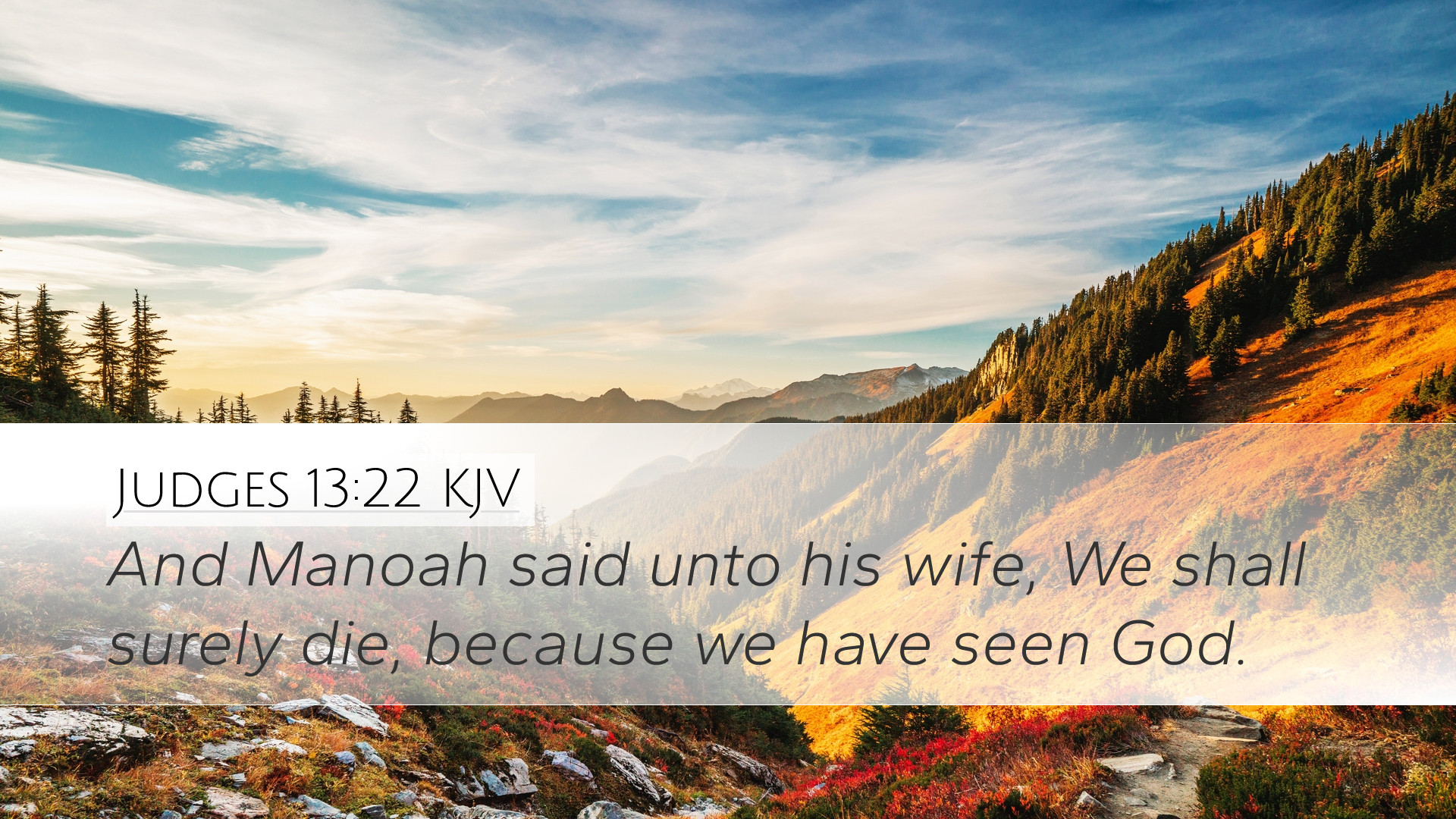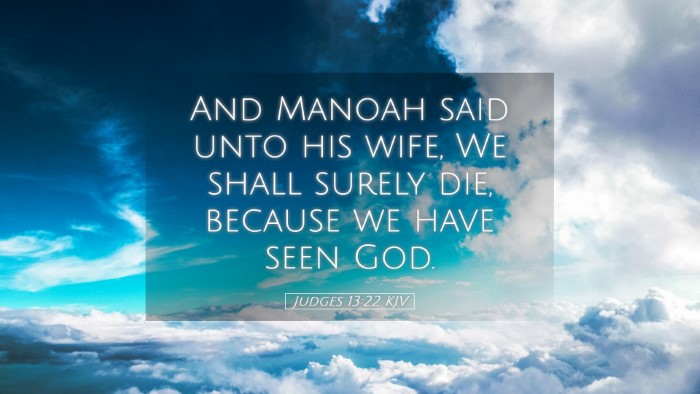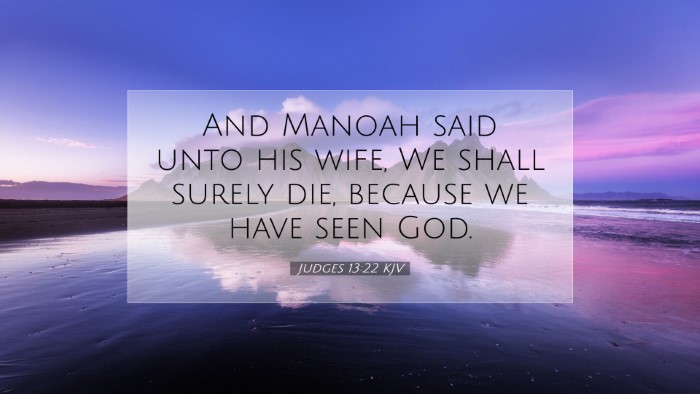Commentary on Judges 13:22
Judges 13:22 states, "And Manoah said unto his wife, We shall surely die, because we have seen God." This passage is pivotal in understanding the nature of divine encounters and the human reaction to them, particularly in the context of God's revelations to His chosen individuals.
Contextual Background
The Book of Judges presents a cyclical pattern of sin, oppression, repentance, and deliverance among the Israelites. In this chapter, the narrative focuses on the birth of Samson, a judge who would deliver Israel from the Philistines. Manoah and his wife, from the Danite tribe, receive a unique visit from an angel of the Lord who announces the birth of their son.
Divine Encounter
The appearance of the angel signifies God's direct intervention and the fundamental importance of Samson’s impending birth. Matthew Henry underscores that the visit of the angel not only foreshadows significant events but also displays God's providential care over His people.
Manoah's Reaction
Manoah's reaction, “We shall surely die, because we have seen God,” reflects several theological and emotional undercurrents:
-
Fear of Divine Presence: The fear of death when encountering the divine is a common theme in Scripture. Albert Barnes notes that such fear is due to the holiness of God and the sinfulness of man. Manoah's immediate assumption of impending death reveals his awareness of humanity's frailty before a holy God.
-
Understanding of God’s Nature: Manoah’s statement also suggests a primitive understanding of God; that seeing God leads to death as depicted in earlier encounters in Scripture. Adam Clarke emphasizes that this reflects a deep-seated fear of divine judgment ingrained within the consciousness of the Israelites.
-
Misperception of God: Manoah’s fear illustrates a broader theological misunderstanding; it is not God’s intention to harm those He visits in kindness. The angel’s previous revelations were meant to instill hope, but despite the angel's instructions, fear overtakes Manoah, reflecting a critical moment where recognition of God’s mercy is clouded by fear.
-
Contrast with New Testament Understanding: This theological tension can be contrasted with the teachings of the New Testament, where encounters with God through Christ often emphasize fellowship and assurance rather than fear. Understanding God as both transcendent and immanent slowly evolves through the biblical narrative.
Theological Implications
This verse opens a theological dialogue regarding the implications of seeing God. For pastoral reflection, it encourages a discussion on how fear can obscure faith and how human responses to divine revelation can be both profound and misguided.
Practical Applications
The insights gained from Manoah's fear serve as cautionary lessons for believers today. Matthew Henry implores that such instances remind us to rely on God's promises and assurances. Any encounter with the divine should ideally lead us to worship and reverence rather than paralyzing fear.
Conclusion
Judges 13:22 resonates significantly with pastors, students, theologians, and Bible scholars, encouraging deeper reflection on the attributes of God and our responses to His presence. It serves as a reminder that while our encounters with the divine might incite fear due to our inherent sinfulness, God desires to draw us into a relationship characterized by hope, restoration, and ultimately, salvation through His Son.
In summary, Manoah's reaction enriches our understanding of God's consistency throughout Scripture and reinforces the call for believers to engage with God boldly, leaving behind fears rooted in misunderstanding and trust in His unyielding love and grace.


